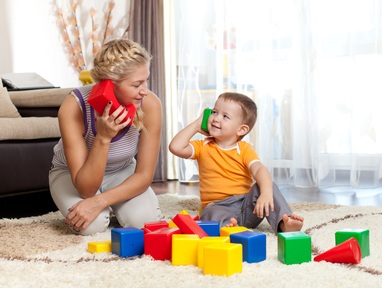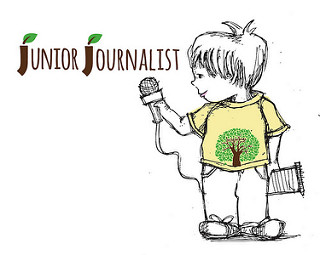
爸比媽咪們都喜歡和孩子玩「假裝」和「開玩笑」,但是你們有發現嗎?原來這些嘻笑玩樂可以教會他們一些生活上的重要技能喔!
科學研究發現,幼兒可以利用「玩笑」自然地學會父母的某些習慣,例如:想象力、逆向思考、生活模式等。一起來看看吧!
Parents who pretend and joke with their children at a young age could be teaching them important life skills, a new study has found. Researchers at the University of Sheffield found that children as young as 16 months old, can tell the difference between joking and pretending and learn from silly behavior.
Dr Elena Hoicka, from the Department of Psychology, commented: “The study shows just how important play is to children’s development. Parents who pretend and joke with their children offer cues to distinguish the difference between the two and toddlers take advantage of these cues to perform.
“For example, if a parent said something like, ‘That’s not really a hat!’ children would realise it was a joke, and not real, and would avoid putting the toy chicken on their head.
“But if parents were pretending that, for example, a block was a horse, they might repeatedly make the block gallop, which would encourage children to do the same, and understand that the block really was a horse in their imagination.”
The study found that toddlers can naturally learn between joking and pretending by picking up on the way their parents behave, in addition children were able to differentiate between the two, allowing them to bond, imagine and learn to think in abstract ways.
The Department of Psychology carried out two separate studies, one involving parents using actions to joke and pretend with their children aged 16–20 months old.
The jokes involved misusing objects, such as putting food on their heads and pretend playing like washing hands without soap or water.
The second study focused on parents with children aged 20–24 months old. Parents joked with their children verbally, pretending a round block was a horse and joking that a toy chicken was a hat.
Dr Hoicka added: “The research reveals the process in which toddlers learn to distinguish joking and pretending.
“Knowing how to joke is good for maintaining relationships, thinking outside the box, and enjoying life. Pretending helps children to practice new skills and learn new information.
“So while parents may feel a bit daft putting a toy chicken on their head they can at least console themselves with the knowledge that they are helping their children develop important skills for life.”
The study was funded by the Economic and Social Research Council (ESRC) and published in the online journal, Cognitive Science. The research found parents’ cues help children identify the difference between jokes and pretend.
Future projects will focus on joking and pretending as children develop from birth to three years old.
** Credit to Ellie Spanswick with www.daynurseries.co.uk **
Original Article 原文請按此: http://www.daynurseries.co.uk/news/article.cfm/id/1570334/children-learn-important-life-skills-through-joking-pretending






